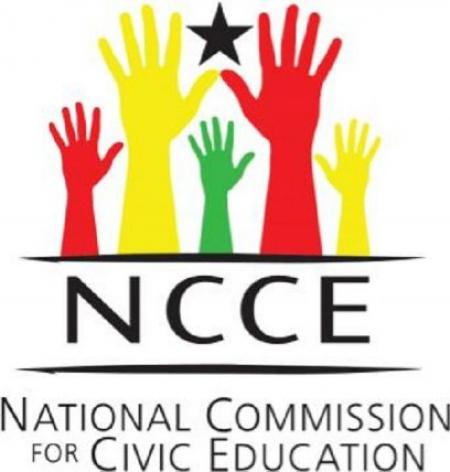Accra, Sept. 20, GNA – The Ga East Municipal and the Ablekuma South-West Sub-Metro Office of the National Commission on Civic Education (NCCE) has organized series of programmes within the Municipalities on civic and voter education.
The two-week programme is being sponsored by the European Union.
It focuses on women and marginalized groups including faith-based organisations, Persons With Disabilities, first time voters, traditional authorities/opinion leaders, women’s groups, artisan groups and identifiable groups.
An official statement issued and signed by Aliyu Sayuti, Chief Executive Officer, Ga East Municipal NCCE and copied the Ghana News Agency, said the programme aims at helping to deepen democracy through creating an atmosphere of tolerance and civic awareness of the voter.
The statement said issues discussed include the right to vote, how to vote to reduce rejected ballots, voting steps, electoral laws, voting on issues, and tolerance before, during and after the elections.
It said the electorate were advised to be tolerant before, during and after the 2016 elections and try to accommodate dissenting views
In another development, the Ablekuma South-West Sub-Metro Office of NCCE has visited the Mamprobi Help Age to educate them on voting processes to promote inclusiveness and participation in the upcoming election.
Mr Stephen Y. Heymann, Officer In-Charge, said the visit was necessitated by the high percentage of spoilt or rejected ballots that characterized the country’s election.
He said the high incidence of spoilt or rejected ballot was a dent on the country’s young democracy adding that there is the need to intensify voter education among the registered voters.
Mr Tetteh Tennyson, Acting Chairman of Mamprobi Help Age, commended the Commission for its efforts to reach out to the aged who are often marginalized by society.
It has been estimated that in 1992, rejected ballots accounted for 3.6 per cent of the total valid votes cast as against 1.53 per cent in 1996. In the first round of the 2000 elections, rejected accounted for 1.8 per cent while in 2004 it constituted 2.2 per cent of the total votes cast.
In 2008, rejected ballots went up recording an overall 2.4 per cent of valid votes cast while in the 2012 elections the number of rejected ballots stood at 251,720 representing 2.3 per cent.
To read the full piece from Ghana News Agency, click here.

